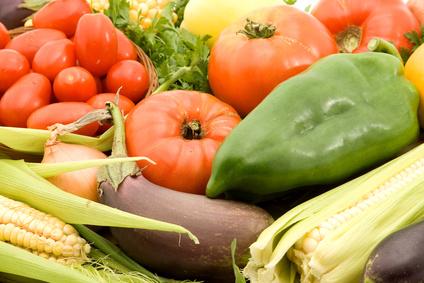You’ve probably heard the saying that pregnant women eat for two. However, that’s largely a myth and is often misinterpreted. While it’s true that you are eating for two during pregnancy, what the saying really means is that everything you put into your mouth affects how your baby grows and develops. What you shouldn’t do is double the amount of food on your plate. Besides, one of your goals while pregnant is to gain a healthy amount of weight, not pack on the pounds.
Benefits
The food you eat provides everything your baby needs to grow. Protein plays a big part in the growth of fetal tissue, including brain development. Similarly, protein promotes the growth of breast and uterine tissues, and increases blood volume in mothers-to-be. Calcium is responsible for the development of baby’s bones and teeth. In addition to benefiting your baby, a healthy diet is good for you, too. Not only does eating well provide you with all the essential vitamins and minerals to keep you strong and full of energy, it ensures that you stay within recommended levels of pregnancy weight gain.
Nutrition
Dr. Jay Goldberg, an obstetrician/gynecologist at the Cedars Sinai Medical Center, says the best pregnancy diet is one that includes a variety of low-fat, low-cholesterol foods from carbohydrates, protein and fat. Goldberg suggests a multi-vitamin is sufficient if you eat a healthy diet, and that prenatal vitamins are more of a marketing ploy. In addition to a multi-vitamin, you should take 400 micrograms (mcg) of folic acid the month before you conceive and throughout the first trimester of pregnancy. Your health care provider can recommend an iron supplement if you are anemic.
Weight Gain
Though weight gain is a normal symptom of pregnancy, many women are concerned about what the right amount is. According to the American Pregnancy Association, women should consume 300 extra calories a day during the second and third trimesters of pregnancy. If you are of a normal weight, Goldberg recommends gaining 20 to 30 lbs. If you are underweight, gaining 28 to 40 lbs. is ideal. Fifteen to 25 lbs. are recommended if you are overweight. You should gain at least 15 lbs. if you are obese.
Warning
With consideration to diet, certain foods should not be eaten while pregnant. Do not eat uncooked or undercooked meat. Avoid certain fish, such as shark, mackerel, sword fish and sushi, since they can contain high levels of mercury that could be detrimental to fetal growth. Do not consume unpasteurized milk or cheese. Finally, eliminate alcohol altogether, and reduce your daily caffeine intake.
Considerations
The best time to think about pregnancy nutrition and weight gain is before you get pregnant. The healthier you are before you conceive, the better your chances of having an easy pregnancy and healthy baby. Once you become pregnant, do not intentionally try to lose weight. Instead, focus on eating a variety of good-for-you foods and giving your baby the best possible start at life.
Photo Credit
- healthy food – vegetables studio isolated image by dinostock from Fotolia.com





